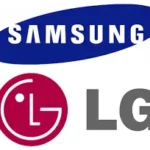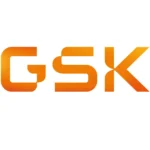Samsung Electronics Co. and LG Electronics Inc., the world’s leading TV manufacturers, have set new benchmarks in the television industry with their latest introductions at CES 2024. Samsung unveiled its quantum dot display (QLED) TV, equipped with a groundbreaking AI processor, the NQ8 AI Gen3, capable of upgrading low-definition video to ultra-high-definition. Meanwhile, LG showcased its innovative organic light-emitting diode (OLED) TV with a first-of-its-kind transparent display.
Samsung’s Neo QLED 8K TV, featuring the NQ8 AI Gen3 processor with a neural processing unit (NPU) twice as fast as its predecessor, is designed to enhance video and audio quality, transforming standard footage into a high-definition experience. This advancement is particularly effective for sports content, eliminating common issues like ball distortion, and is complemented by the Q-Symphony function for superior audio synchronization across various media.
On the other hand, LG’s Signature OLED T is equipped with the new Alpha 11 processor, significantly boosting graphic performance and processing speed. Its transparent display is a pioneering innovation in the industry, offering a blend of high-quality imagery and seamless integration with interior design, thanks to its wireless design and dual screen modes.
These advancements come at a crucial time when traditional TV makers are striving to reclaim viewers increasingly turning to smartphones and tablets for video consumption. By enhancing TV capabilities with ultra-high definition and immersive realism, Samsung and LG aim to differentiate their products from smaller screens, offering experiences akin to being at live events.
Both companies are focusing on operating systems as well, with Samsung introducing the 2024 Tizen OS, providing a personalized and secure smart home hub, and LG showcasing an exclusive OS for its Signature OLED T, designed to deliver essential information seamlessly.
The CES 2024 has become a platform for these tech giants to exhibit their vision for the future of television, combining AI processors, transparent displays, and sophisticated operating systems. This innovation race is set to redefine the standards of home entertainment, influencing global competitors like Sony, TCL, and Hisense to accelerate their advancements in AI TV technology.







